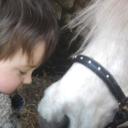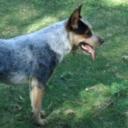Yahoo Answers is shutting down on 4 May 2021 (Eastern Time) and the Yahoo Answers website is now in read-only mode. There will be no changes to other Yahoo properties or services, or your Yahoo account. You can find more information about the Yahoo Answers shutdown and how to download your data on this help page.
Causes of Laminitis ?
After reading that there are fears that 2013 Victoria Derby winner Polanski could develop laminitis due to his injury suffered in the Futurity Stakes, I started wondering about the causes of laminitis.
How many people have had a horse or pony that had laminitis?
What caused it?
How did you treat it?
How long did it take for the horse to overcome it?
I have never yet had a horse or pony that has suffered this (hope I never do), and while I know quite a bit about it, I would like to hear from people who have experienced it themselves. From the owner's point of view (personal), rather than the vet (technical).
3 Answers
- 7 years agoFavourite answer
i have a pony mare who suffered from laminitis attacks regularly over the first year or so after i bought her until it was properly stabilised thanks to the ex owner lying about her soundness and telling me it would be fine to sling her out on grass. it can kill (i.e. if it causes bad founder it may be too painful and irreversable and thus mean the horse would need pts to avoid months of slow suffering). laminitis can be triggered by carbs and sugars, most cases being in the lush grass in spring and the end of summer, though ours had an attack due to the frost affecting the blood vessels in her hoof too and too much hard exercise can cause concussion lami. overweight horses and ponies are most at risk, and a previously sound animal may get laminitis if it is allowed to get obese, and i've heard of small diet changes being a trigger. all laminitics should now be checked for cushings disease, as this hormonal condition (alike to diabetes) is getting to be very common among previously diagnosed laminitics. we tested negative for this, but had we been positive we'd have been able to stabilise the condition with medication. as it is we have been sound for a year and a half now simply by watching the weight, keeping her in on lush times, since the electric fence won't deter her, and feeding low sugar sontent foods. during a lami episode, we have reduced her down to happy hoof (a feed for laminitics etc) and straw, which is usually not a feed due to low nutrients; had a hoof trim immediately (they need regular farriers visits) and she's been on anti-inflamitory and painkillers, along with cushioning pads to help keep the hoof aligned properly, since the pedal bone can rotate and drop through the hoof (which essentially is the problem with lami). it can be fairly easily treated, but recovery can be long and depending on the trigger, it can vary on how easy it is to control. her full sister, who eats the same and lives in/out with her has never had this problem, but they are both good doers, where you never need to fatten them up, whereas i have two big horses who will eat any amount of rich feed and are always sound, so sometimes it seems like pot luck. the laminitis trust should have a good medical description for you, but from an owners point of view, most wouldn't buy a horse known to have a history of this consition, because its costly of time, money, resources and its a bag of stress, but the thought of soundness at the end keeps you going.
- CDogLv 77 years ago
One of my horses had laminitis after a bout of colic. I actually didn't find out until the farrier was out and we saw blood in the white line. Fortunately, she had no lasting effects. Some of my in laws have a large ranch and keep horses in huge pastures. Several of their horses have foundered from too much grass, and have to be kept off it at certain times of the year.
I've known people that have stood their horses in cold water (like a creek) and had their horses come out of acute laminitis.
Laminitis is most often caused by excessive food intake. It can also be caused by injury or concussion.
Laminitis can be career or life threatening. Secretariat ultimately died of laminitis.
- MikeLv 77 years ago
Laminitis is a serious, crippling disease of horses, ponies and donkeys
Source(s): http://www.animedvets.co.uk/laminitis.htm




